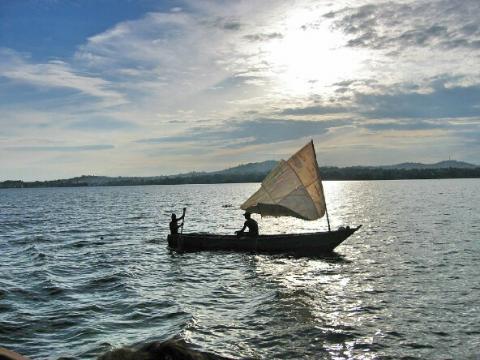
Steve Veryser, a Maryknoll Lay Missioner in Tanzania, considers how the readings for this Sunday give us hope and strength for these challenging times.
While COVID-19 has swept through nations in the Global North after its terrifying debut in China, the Global South, including Tanzania and other East African nations, has generally been behind the curve in terms of infection rates. Hearing from family in the U.S. about the toll of the virus there, Maryknoll missioners in East Africa have been concerned about the coming impact of the virus. They have shared ideas with the communities they work with about how to be prepared to reduce the spread of the virus.
Our concerns and ideas have been met with responses varying from apathy, to disbelief, to fatalism and denial, to extreme anxiety bordering on paranoia. The early disciples probably themselves dealt with similar emotions, and later received similar responses from those to whom they were spreading the Good News. We can only imagine what it must have been like for the apostles to lose their dear friend and leader to a gruesome death, suddenly find him resurrected, and then somewhat mysteriously lose him again within a few weeks.
The readings today, and this period of the Church calendar, remind us of the cycles of suffering, exodus, and renewal that our ancestors in faith went through and celebrated in the past. They give us hope and strength in living through the challenges of the current pandemic. They give us consolation that there are times in our life that call for prayer, hiding, and waiting and that patience is a gift that God can give us when we are dealing with isolation, quarantine, and loss. It has been comforting to remind myself that amid this hardship, God may be calling me to pray -- to stop, breathe, and let go. Sometimes the closeness to God that we find in a quiet moment, as the disciples experienced over ten days in the upper room, is the destination that God has in mind for us.
Though I started the process to join Maryknoll as a Lay Missioner two years ago, I had been living and working in East Africa in different capacities for about twelve years before that. Working for different nonprofit organizations, I gained a lot of valuable experience and knowledge, and, I like to think, made a difference in many people’s lives. I knew most of the Maryknoll Lay Missioners in Tanzania but had hardly considered joining them myself as an option. My pride wouldn’t have it.
Two years ago, while working in the job I had before joining Maryknoll, I was living a four-hour drive apart from my wife and three children in a small town where the organization I worked for was implementing a large nutrition and livelihood project with local primary schools. Looking back, I see it as an “exodus” time in my life.
For Lent in 2018 I resolved to attend daily Mass in the early mornings. As the sun rose at 6:35 a.m., rain or shine (often rain, as March is during the rainy season in northern Tanzania), I would ride a Honda 125 motorcycle a mile down the road to a little chapel that was attached to a Franciscan retreat center on the shores of Lake Victoria. At these intimate masses I happened to run into the handful of new missioners who were studying Swahili at the language school nearby. They reminded me of my early days in the Peace Corps in Tanzania. I remembered my faith and the call to serve and to live with “the people” that had brought me here so many years ago. God caught me, again.
After lockdowns around the world, people are using the extra time for discernment about what they are called to do with their lives, and Maryknoll has seen a recent jump in inquiries about serving in mission. Similarly, while times are tough for many, people that can are giving financially to support our work.
Sometimes in mission it feels like every day is an emotional obstacle course through suffering, exodus, and renewal. One minute we are asked to comfort a neighbor whose relative died, the next we may feel left out of a conversation because we don’t pick up on language or cultural cues, and the next we can stare in awe at the big blue sky of Africa. When people newer to the country share their frustrations with life here, it is often hard not to defer their “why” questions to a higher power, as my parents used to answer my difficult questions with “it’s a mystery.” Answers are scarce, but these readings remind us that hope is abundant. As today’s psalm assures us, “I believe that I shall see the good things of the Lord in the land of the living” (Psalm 27:13).
Photo: Lake Victoria in Tanzania
